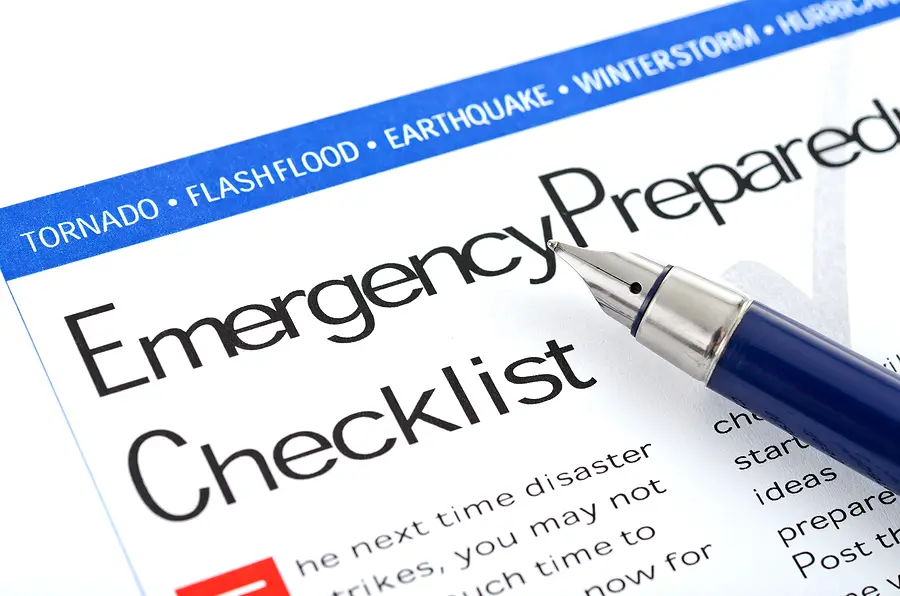If Game of Thrones has taught us anything, it’s this: Chaos is inevitable, but preparation is power. When disaster strikes, your ability to respond effectively determines how well your community can recover.
For landlords and HOA board members, being proactive isn’t just smart—it’s a requisite.
With rising risks of natural disasters and unforeseen emergencies, you must plan ahead and have a robust disaster preparedness plan that protects your property, residents, and investments.
Why Emergency Preparedness Matters
When a disaster occurs, your community members rely on strong leadership and clear communication. Whether your properties include single-family homes or high-rise buildings, emergency preparedness minimizes risks, ensures resident safety, and prevents costly property damage.
HOA board members and association board leaders have vital roles and responsibilities in creating and enforcing emergency response plans. Establishing effective disaster planning measures could save lives and protect investments during an emergency situation.
Natural disasters like hurricanes, floods, and wildfires are becoming more frequent. These disasters can overwhelm local governments and emergency responders, making it even more crucial for community associations to have independent emergency management plans.
Failing to plan could lead to chaos, but you can ensure resilience and recovery with the right strategies.
Build an Emergency Plan With Key Components
Every successful emergency plan begins with understanding your community’s specific needs. Evaluate the vulnerabilities tied to your location and infrastructure.
Tailor your emergency plan to reflect these factors. Incorporate key components like evacuation procedures, a communication system, and guidance for board members on their responsibilities. Ensure you have governing documents and leverage reserve funds for emergency repairs when necessary.
Key Emergency Preparedness Tips for Your Community
1. Assess Risks Specific to Your Location
Every community’s emergency plan begins with understanding risks. Evaluate the unique vulnerabilities of your location and infrastructure.
Do you manage high-rise buildings in dense urban areas or single-family homes in flood-prone regions? Each situation demands tailored disaster planning.
Consider reserve funds for emergency repairs and develop educational materials to inform residents about potential threats.
2. Develop a Comprehensive Disaster Preparedness Plan
Your disaster preparedness plan is the backbone of your community’s safety. It should include key components such as evacuation procedures, a communication system, and designated emergency roles for board members.
Ensure you have governing documents that outline responsibilities and engage with your management company to align on protocols.
Don’t forget to maintain an inventory of emergency supplies in common areas and establish updated protocols for keeping these items.
3. Collaborate With Local Authorities and Organizations
It is crucial to build partnerships with local governments, community-based organizations, and government agencies. These groups can provide guidance, resources, and additional training for your community leaders.
Host seminars with emergency responders to educate residents about evacuation routes and safety tools, such as fire extinguishers and first aid kits.
Strong relationships with external organizations can significantly ease your recovery process after an event.
4. Prioritize Training and Drills
Conducting drills isn’t just a checklist item; it’s a lifesaving exercise. Repeated training sessions benefit board members, residents, and community staff.
Practice evacuation procedures, test your communication systems, and establish clear emergency protocols. Preparing can eliminate confusion when disaster strikes and instill confidence in your residents.
When Disasters Strike- You and Your Community Are Prepared!
Leadership rests on your shoulders, so take proactive steps today to secure your community’s future. Your role in emergency management is crucial, from crafting actionable emergency response plans to maintaining clear communication. Don’t wait for the next natural disaster to compel action. Prepare now because when a disaster occurs, preparation isn’t just an advantage—it’s survival.
Communicate effectively with your community during emergencies to avoid unnecessary risks. Stay aware of emerging threats and revise plans regularly.
EJF Real Estate is your ally in developing comprehensive disaster preparedness strategies, ensuring resilience in the face of emergencies. We offer various services, such as HOA property management services.
The true power of a community lies in its unity and preparedness!
Other Resources:
How Consulting Services Can Streamline Your Real Estate Development Process in Maryland
Navigating The Corporate Transparency Act for Community Associations in Virginia




